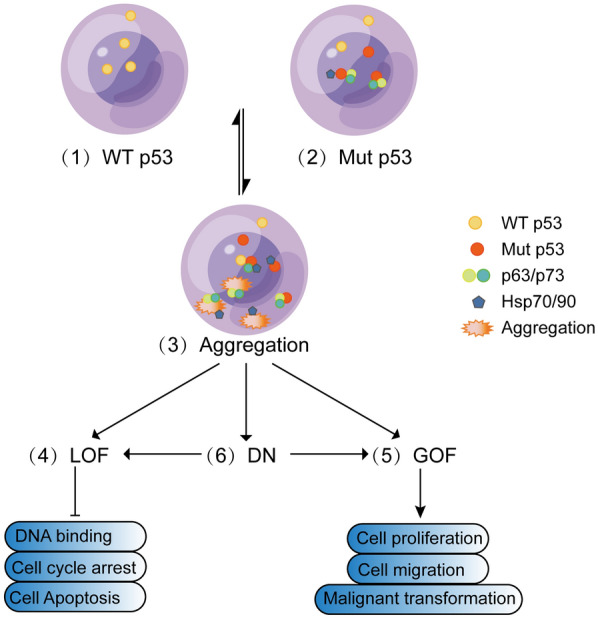Fig. 2.

The roles of p53 aggregation in tumor progression. (1) In normal cells, wild-type p53 is functional at the nucleolus and can regulate the cell cycle and preserve cell integrity. (2) In cells expressing an aggregation-prone mutant p53, mutant p53 can interact with homologs p63/p73 or Hsp70/90. p53 will be inactivated due to genomic or cancer cell-specific mutation events. (3) Aggregated p53 may interact with different proteins, such as p63/p73 and heat shock proteins. p53 aggregation might lead to the following three kinds of effects. (4) Loss-of function [LoF]: Losing wild-type activity, p53 is no longer active in the nucleolus. (5) Gain-of-function [GoF]: Acquire oncogenic activity without disrupting the activity of wild-type p53. (6) Dominant-negative [DN]: Inhibit the wild-type p53 protein via a dominant-negative effect and display oncogenic activity (GoF) or no other activity (LoF)
